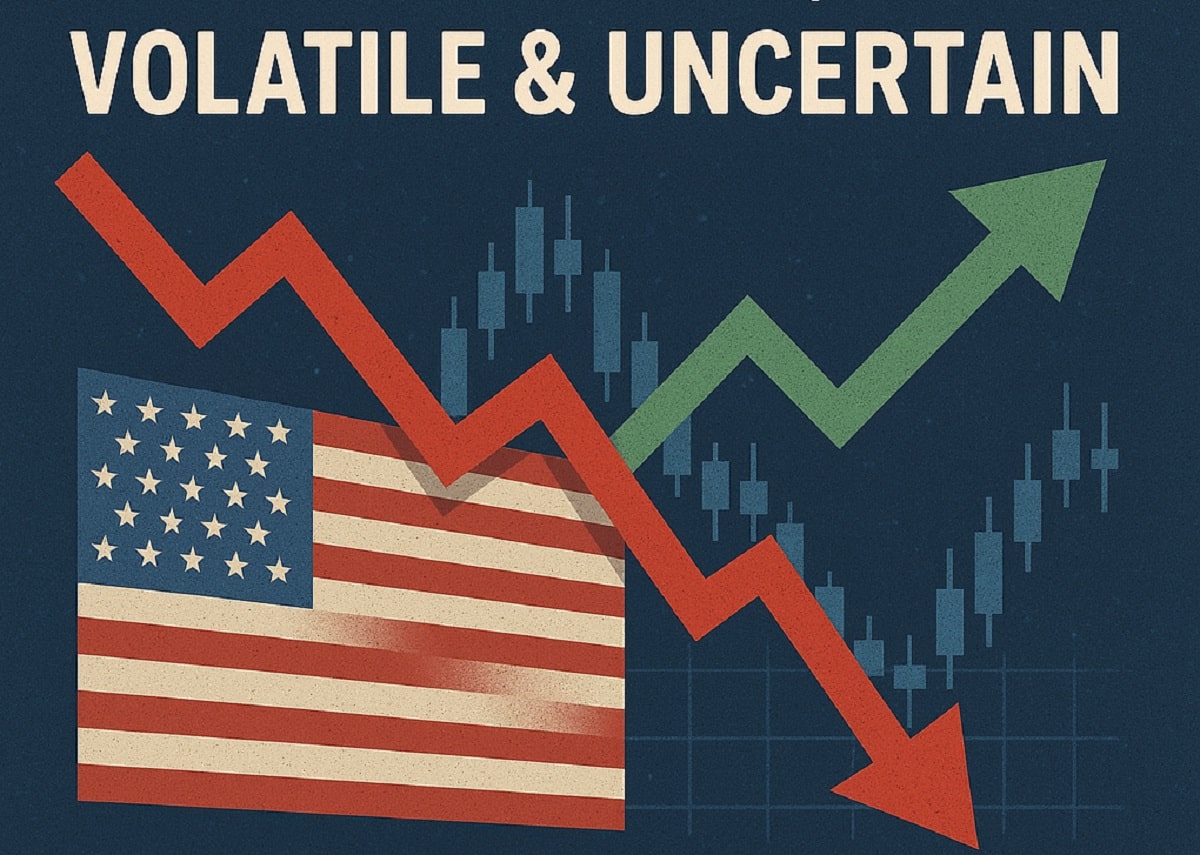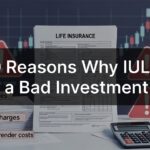On June 24, 2025, Amazon unveiled a $55 billion investment in the UK. They’re building warehouses, offices, and tech hubs over three years. Real estate stocks, known as REITs, surged on the news. Below I’ll explain how real estate ETFs like VNQ can pay steady cash while markets buzz. Amazon’s spending big—want ETFs that pay you? Let’s jump in.
Amazon’s Massive News
Amazon’s Plan and Your Money
Amazon’s $55 billion UK investment is huge. They’re constructing four warehouses in Hull, Northampton, and the East Midlands, plus upgrading their London headquarters. This could add $38 billion to the UK economy and create 4,000 jobs by 2027. REITs—companies owning properties like warehouses and apartments—gained ground. The Vanguard Real Estate ETF (VNQ) rose 1.2% last week. UK housing prices are slowing, making homes more affordable, which supports REITs tied to rentals.
This impacts your wallet. Amazon’s spending drives demand for warehouses, boosting REIT prices. A calmer housing market keeps interest rates stable, which REITs thrive on. Markets can be shaky, though. Fed Chair Jerome Powell’s testimony on June 24–25 might signal high rates, rattling stocks. Real estate ETFs like VNQ pay cash regularly, no matter what.
Why Real Estate ETFs Shine
Markets swing like a pendulum. You want cash that keeps flowing. REITs own properties—warehouses, apartments, malls—and pay out most profits to investors. ETFs like VNQ hold dozens of REITs, spreading risk. VNQ pays 3.5%, so $10,000 gives $350 a year, like rent without owning property. Last week, VNQ climbed 1.2%, riding Amazon’s announcement.
Amazon’s move offers three wins:
-
REIT Surge: Their $55 billion fuels warehouse demand, lifting REITs.
-
Stable Housing: Slower price growth keeps rates steady, helping REITs.
-
Reliable Payouts: VNQ pays you, even if markets dip.
Real estate ETFs keep your cash coming, whatever the news.
Why Real Estate ETFs Are Smart
How They Work
Real estate ETFs like VNQ hold REIT stocks that own properties. Some have warehouses Amazon might use. Others own apartments or shopping centers. VNQ, run by Vanguard, pays 3.5%—$350 a year for $10,000. It’s cheap, with a 0.08% fee, and includes big players like Prologis, an Amazon partner. When Amazon shared their $55 billion plan, REITs like Prologis saw gains.
A small investor might put $5,000 in VNQ, earning $175 a year to cover streaming subscriptions. Even when markets dropped in June, VNQ kept paying, offering safety during big news like Amazon’s.
Using Real Estate ETFs
Put 10% of your savings in real estate ETFs. For $100,000, that’s $10,000. VNQ costs $90 a share. Your $10,000 buys about 111 shares, paying $350 a year. If Amazon’s plan boosts REITs, VNQ could grow. In 2022, when stocks fell 18%, VNQ dropped 6%. It’s steady in wild markets.
These ETFs balance your money. They don’t rocket like tech stocks but don’t crash either. Amazon’s investment makes them attractive—more warehouses mean more rent for REITs. If rates rise or housing slows too much, REITs could dip. Keep your stake small to stay safe.
Tips to Start
-
Choose VNQ: It’s low-cost and holds top REITs like Prologis.
-
Cap at 10%: Mix with other safe bets for balance.
-
Reinvest Cash: Use your $350 to buy more shares.
-
Track Housing: Slower home prices support REITs.
Adding Safe Investments
Bond ETFs for Protection
Real estate ETFs are strong, but bond ETFs add safety. The iShares TIPS Bond ETF (TIP) pays 2.1% and grows if prices for gas or groceries rise. TIP stayed steady in June’s market swings. Put 10% of your savings in TIP—$10,000 for $100,000. That’s $210 a year, plus protection if prices climb. Bonds and real estate ETFs keep your money secure.
A retiree might mix VNQ and TIP, earning $560 a year from $20,000 to cover utility bills. Even when stocks dipped, their savings held firm, showing strength during news like Amazon’s.
Why Combine Them
Real estate ETFs ride Amazon’s wave, but markets can surprise. Powell’s testimony might keep rates high, hitting stocks. Or housing could slow too fast, pinching REITs. Bond ETFs like TIP act as a shield. They pay less than VNQ but guard against price jumps. If rates stay high, bonds hold value. Mixing them builds a solid plan.
Tips for Bonds
-
Pick TIP: Buy it for $105 a share, 0.19% fee.
-
Stay at 10%: Complements your VNQ stake.
-
Watch Prices: If food gets pricier, TIP grows.
-
Be Flexible: Sell some if bonds grow too large.
Boosting Cash Flow
Utility Stocks for More Payouts
Want extra cash? Try utility stocks like Duke Energy. They pay 3.8%—$380 a year on $10,000. Utilities power homes, staying steady when markets wobble. Duke held firm in June. Put 5% of your savings, or $5,000 for $100,000, in Duke at $100 a share. That’s $190 a year, plus growth if markets stay strong.
A young professional might buy Duke stock, earning $200 a year from $5,000 for family outings. When stocks fell, their payouts continued, adding reliability to real estate and bond ETFs.
Tips for Utilities
-
Select Strong Stocks: Duke or NextEra Energy pay well.
-
Keep Small: 5% reduces risk if markets dip.
-
Use Payouts: Reinvest your $190 for more shares.
-
Monitor Rates: High rates might affect utilities.
The Bigger Picture: Housing and Amazon
Housing Market Trends
UK housing prices are growing at their slowest pace since 2023. This helps REITs. Lower prices mean stable interest rates, which REITs thrive on. Buyers find homes more affordable, boosting demand for rentals owned by REITs. Amazon’s $55 billion fuels this—warehouses need land, workers need homes. VNQ benefits from both.
Realtors report more home sales as prices ease, lifting REITs with apartments. This trend supports VNQ’s growth, making it a solid pick for steady cash.
Amazon’s Long-Term Impact
Amazon’s $55 billion isn’t just warehouses. They’re growing cloud computing and AI hubs, needing offices. This lifts REITs like Prologis, an Amazon partner. The UK predicts $38 billion in economic growth by 2027. That’s big for REITs. But if rates rise or Amazon scales back, REITs could feel it.
Tips for Context
-
Look Ahead: Hold VNQ for 5–10 years to ride Amazon’s growth.
-
Follow Housing Data: Slow price growth signals REIT strength.
-
Stay Informed: Track Amazon’s UK projects for REIT cues.
-
Get Advice: A financial advisor can refine your plan.
Your Plan to Keep Cash Flowing
A Simple Mix
Here’s a plan for $100,000:
-
Real Estate ETFs (10%): $10,000 in VNQ for $350 a year in payouts.
-
Bond ETFs (10%): $10,000 in TIP for $210 a year.
-
Utility Stocks (5%): $5,000 in Duke for $190 a year.
-
Cash or Other (75%): $70,000 for flexibility.
This pays $750 a year—enough for a new gadget or savings. It’s safe if markets dip or rates climb. Amazon’s $55 billion lifts REITs, but VNQ, TIP, and Duke keep your cash steady.
Things to Watch
-
Real Estate ETFs: High rates could slow VNQ. Limit to 10%.
-
Bonds: TIP shines with rising prices. Mix with others.
-
Utilities: Duke might dip if markets turn. Pick reliable stocks.
-
News: Track Powell’s rate comments and Amazon’s UK updates.
Review your mix yearly. Sell if one part grows too large.
Can Your Money Handle a Shift?
Picture markets soaring, then rates spike. Or housing stalls. Will your cash hold? VNQ pays 3.5%, fueled by Amazon’s spending. TIP gives 2.1%, guarding against price jumps. Duke adds 3.8%. Amazon’s making moves—ready to grab ETFs that pay you? Start today to stay secure.
The Numbers
-
Real Estate ETFs: VNQ up 1.2% last week, pays 3.5%.
-
Amazon: $55 billion UK plan announced June 24.
-
Housing: Price growth slowest since 2023.
-
Bonds: TIP pays 2.1%, steady in June.
-
Utilities: Duke pays 3.8%, strong in June.
These show real estate ETFs are a smart choice.
Why Real Estate ETFs Last
Real estate ETFs aren’t just hot now—they’re built to last. REITs must pay 90% of profits to investors. That’s why VNQ’s 3.5% is reliable. They own properties with steady demand—warehouses, apartments, stores. In 2008, when stocks crashed 37%, REITs fell 20% but kept paying. In 2020, VNQ held firm during COVID while tech wobbled.
Consider your goals. A teacher might use VNQ’s $1,575 from $15,000 over three years for school supplies. Real estate ETFs offer cash now and growth later, fitting needs like saving for college or retirement.
Extra Tips for Real Estate ETFs
-
Check History: VNQ’s paid steadily since 1996.
-
Diversify: Pair VNQ with ETFs like SCHD for balance.
-
Hold Long: Keep for 5–10 years to stack payouts.
-
Learn More: Explore REIT resources online.
More Context: Markets and You
Markets are buzzing with Amazon’s news, but other trends matter. Tech stocks like Tesla rose 8% on June 24, showing optimism. Consumer confidence climbed in June, hinting at more spending. Powell’s testimony could keep rates at 4.3% or higher, affecting stocks. Real estate ETFs like VNQ don’t swing as much as tech, making them safer for steady cash.
A young couple might use VNQ payouts for a vacation fund. Markets move, but real estate ETFs keep paying, fitting goals like buying a car or building savings.
Tips for the Market
-
Know Your Needs: Decide how much cash you need yearly.
-
Start Small: Try $1,000 in VNQ to test it.
-
Stay Calm: Markets shift, but your ETFs pay.
-
Keep Learning: Follow market news to stay sharp.
Wrap-Up: Make Your Money Work
Amazon’s $55 billion UK investment on June 24 lifts real estate stocks. Housing prices slow, supporting REITs. Markets might wobble if rates rise. Real estate ETFs like VNQ pay 3.5% and stay steady. Bond ETFs like TIP add safety at 2.1%. Utility stocks like Duke bring 3.8%. Put 10% in VNQ, 10% in TIP, 5% in Duke. Buy them today. Track housing and Fed news. Review your mix yearly.
Your cash can handle any twist. Start now to keep it flowing.


































